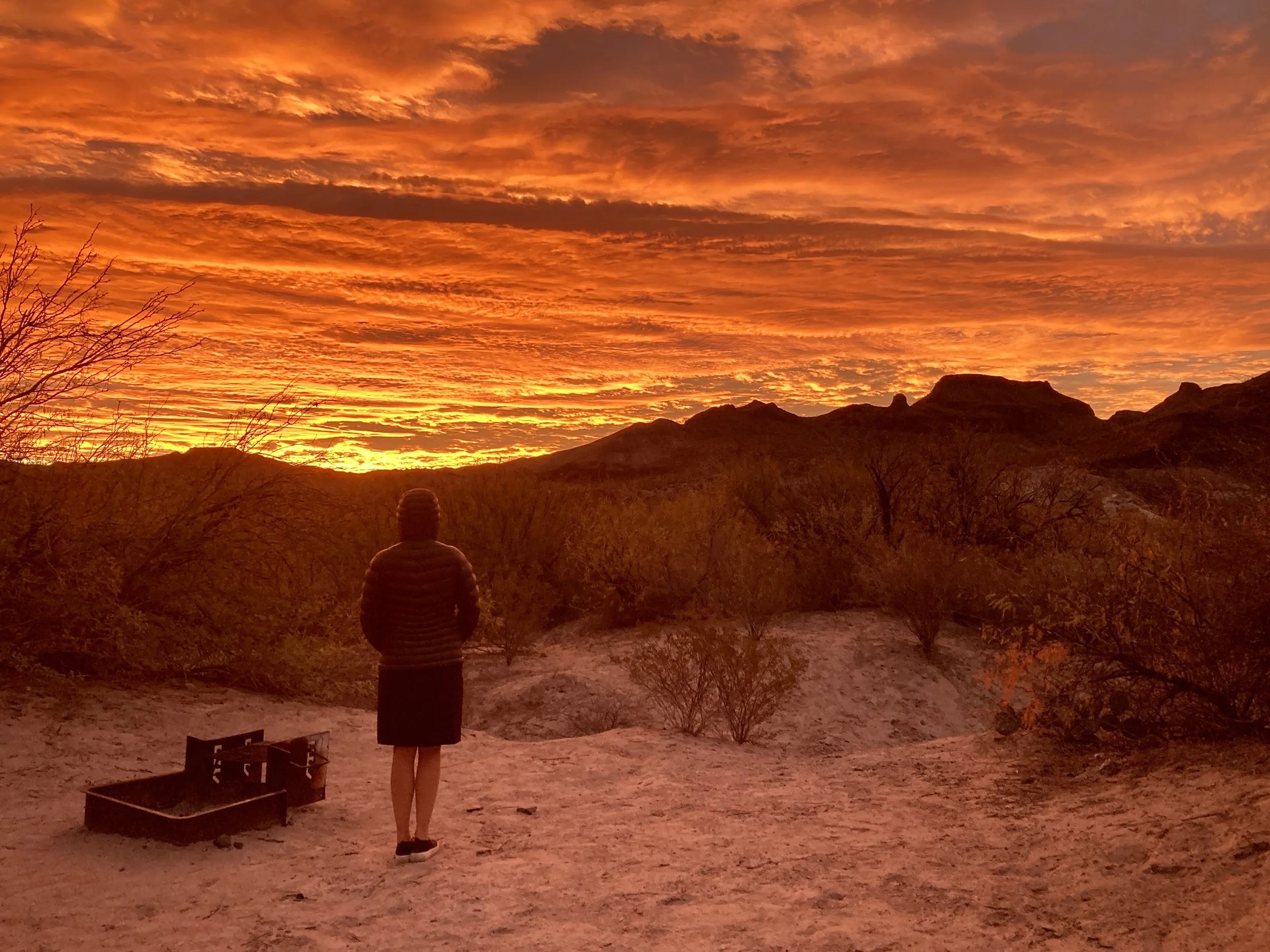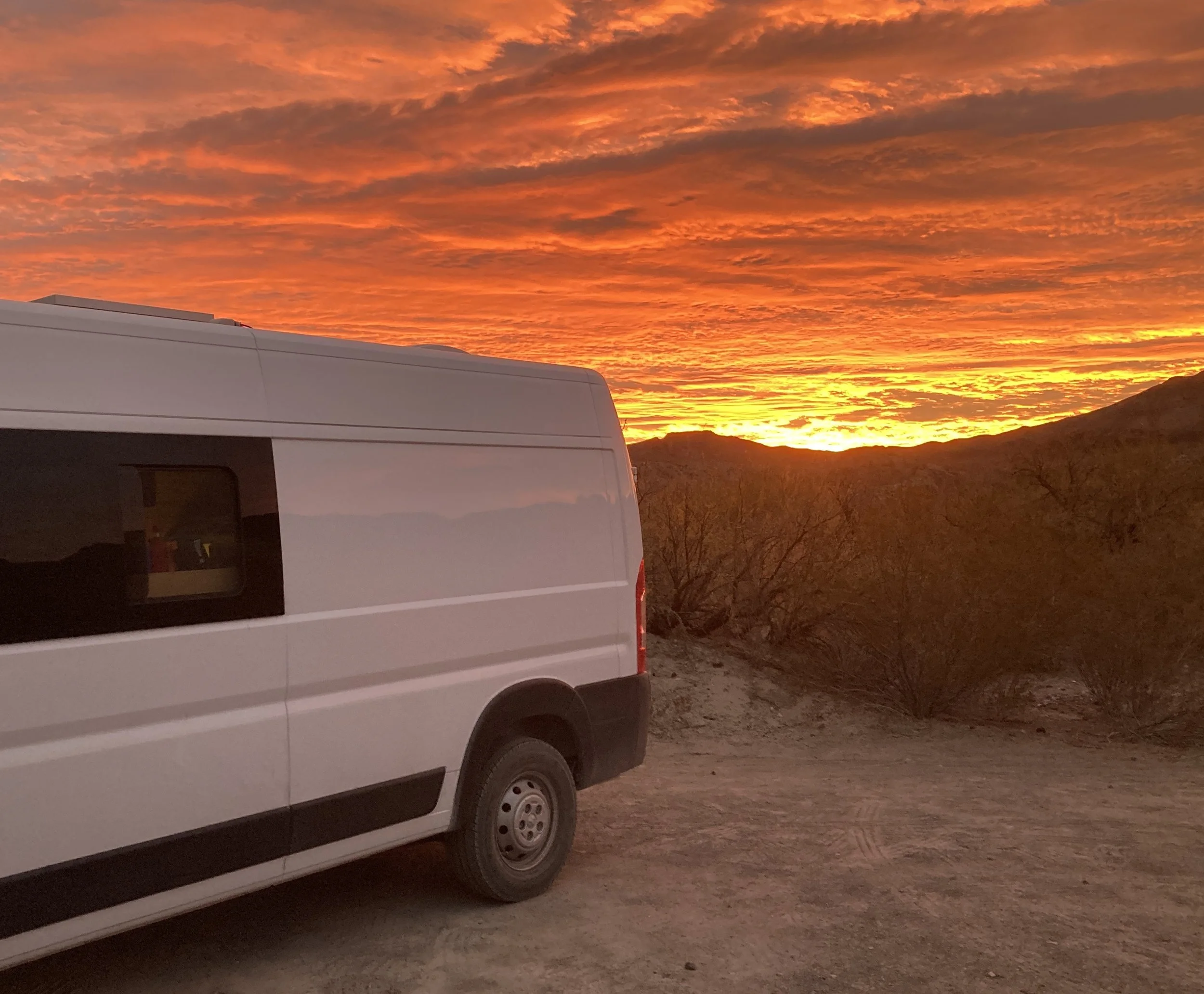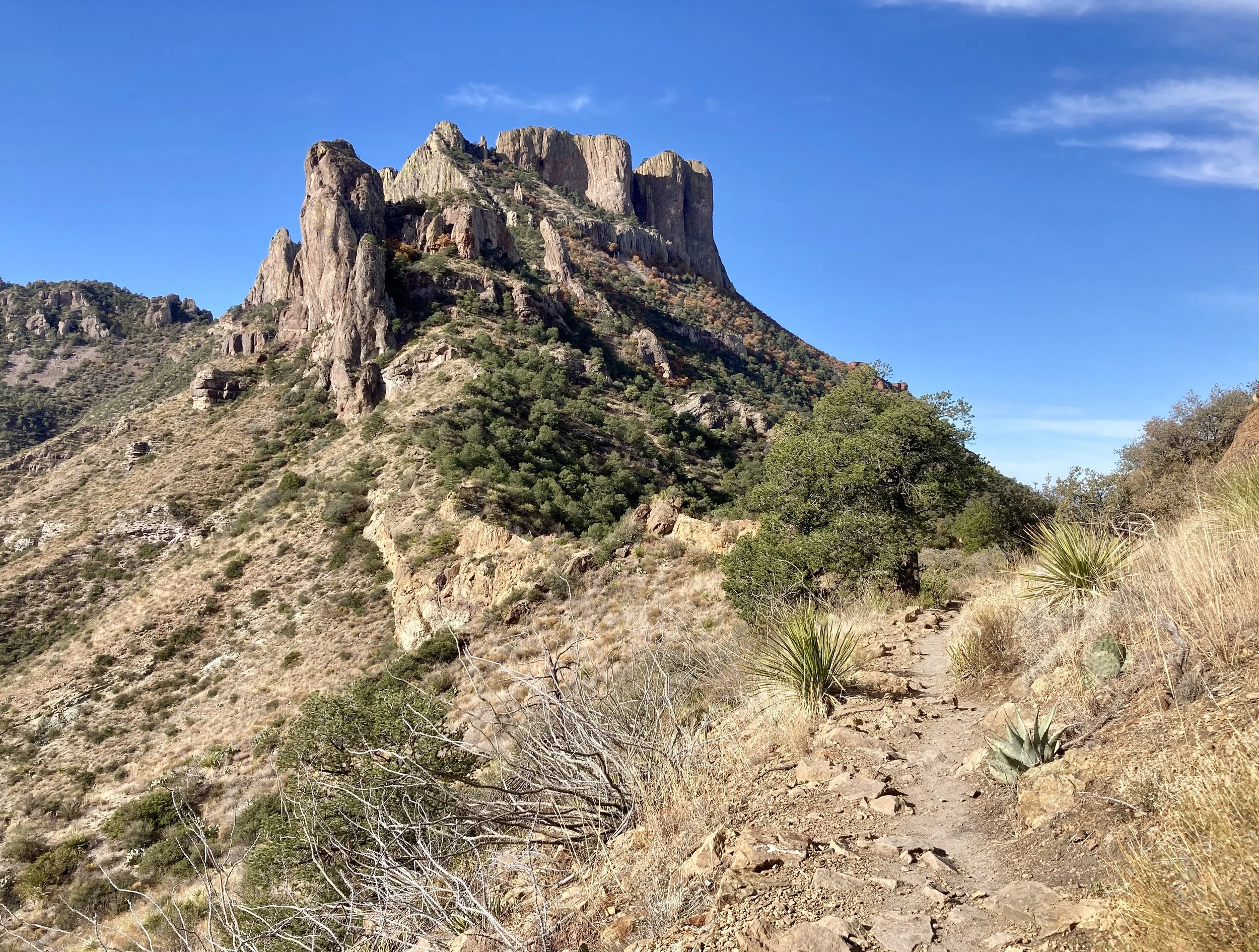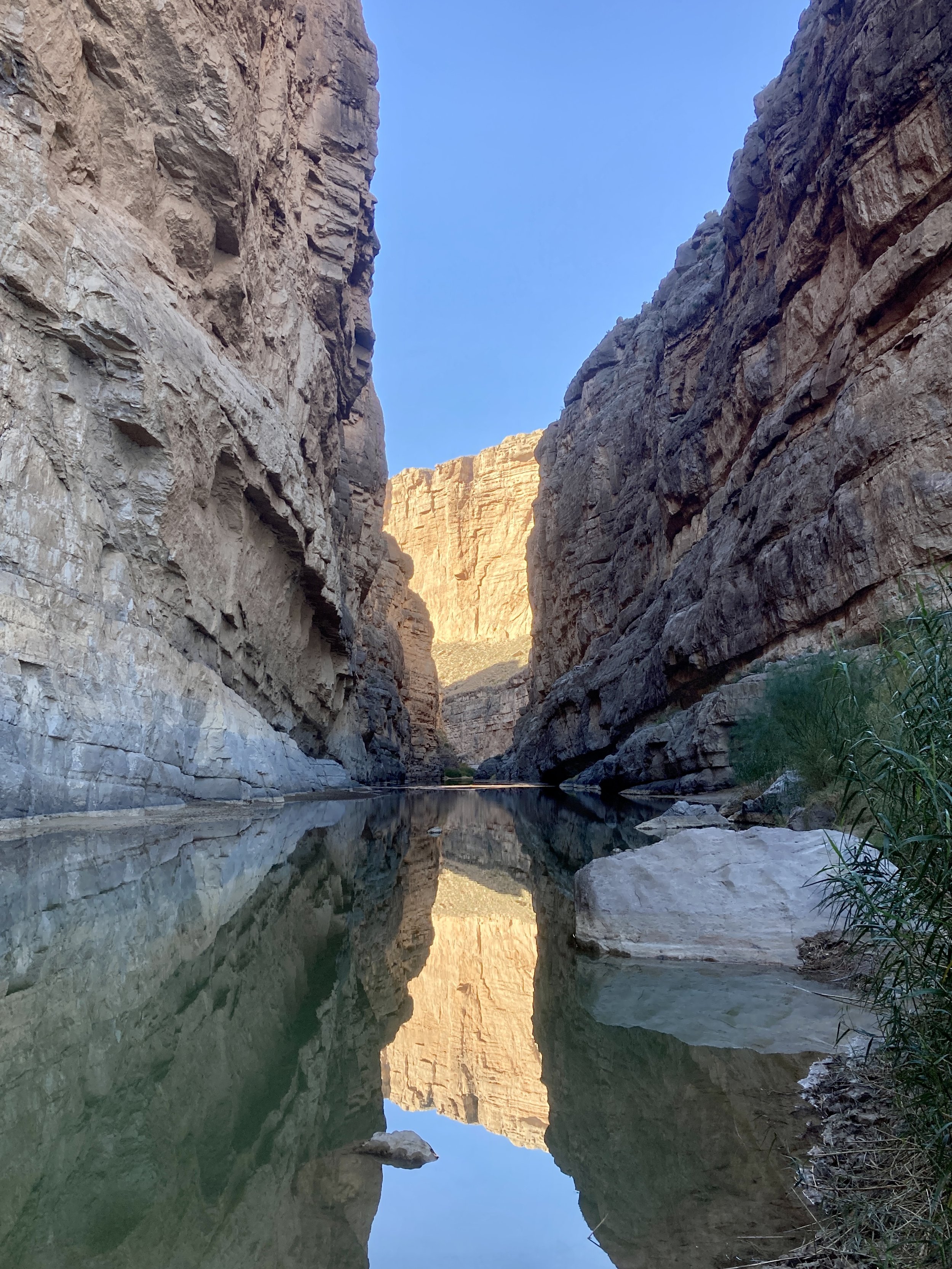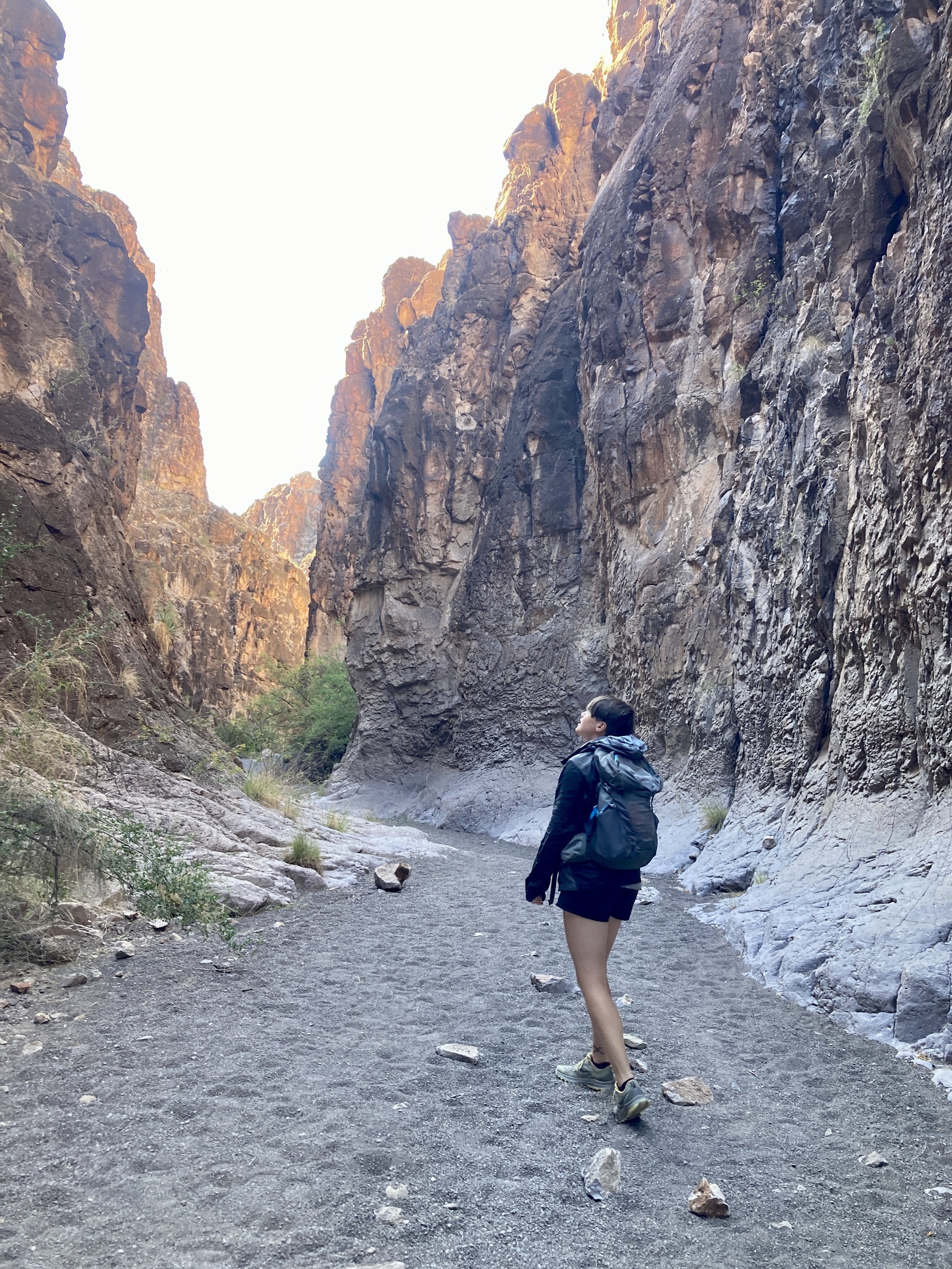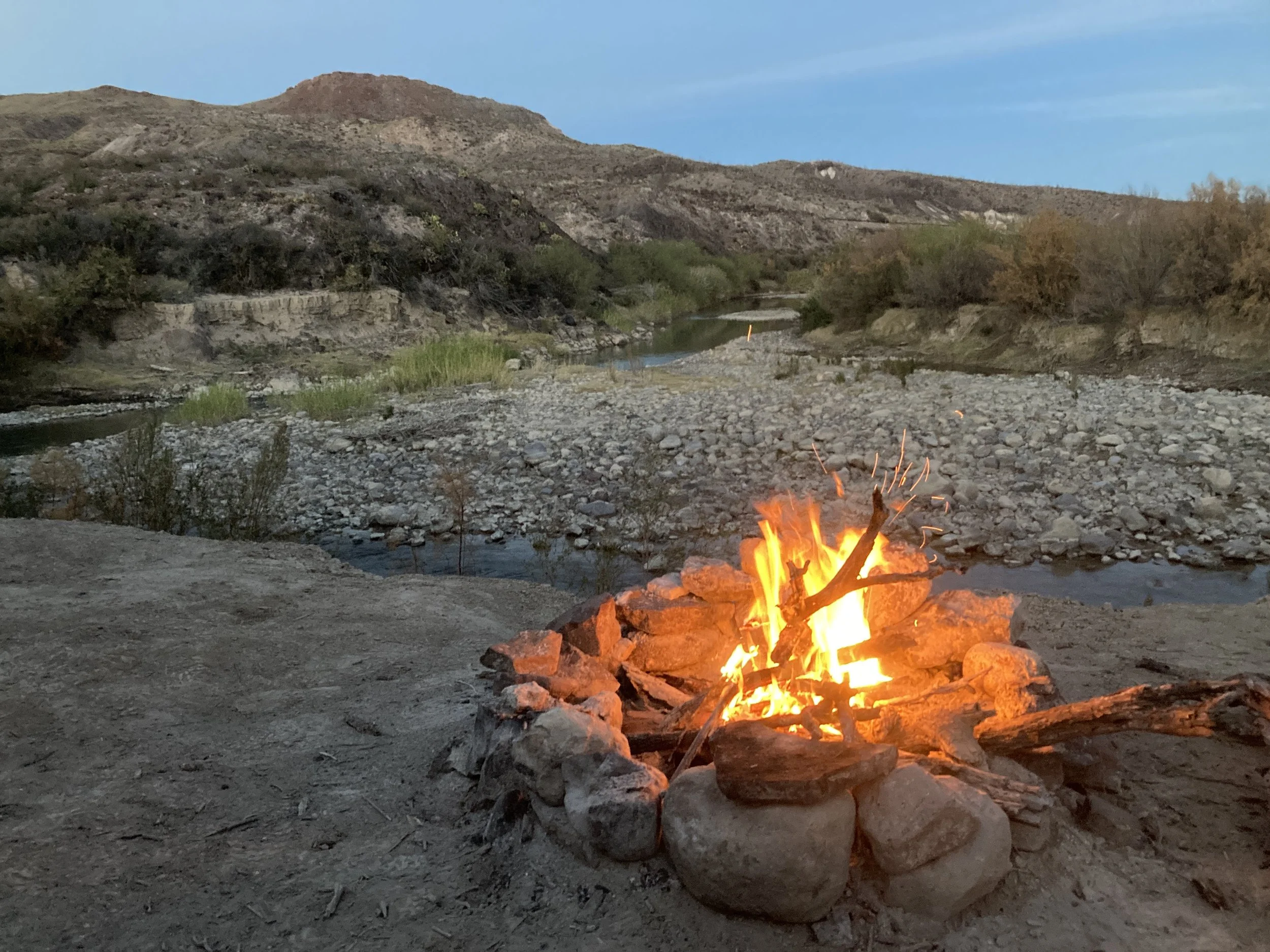Why You Should Take a Two-Week Vacation
Just because you’re on vacation doesn’t mean you need to sleep the day away. We enjoyed the most incredible sunrises on our trip to Big Bend!
It's impossible to fathom the immensity of Big Bend until you see it for itself. This vast tract of wildland is found inside of a "big bend" in the Rio Grand River, which forms the US/Mexico border.
Exactly where you draw the lines between what is and what is not "Big Bend" is a bit of an arbitrary discussion. Of course, most peoples' minds jump to Big Bend National Park, which covers 801,163 acres on its own. But then, about an hour away, you'll find Big Bend Ranch State Park. Big Bend Ranch reigns as Texas's largest state park, which is saying something in a place the size of Texas. This park alone covers an additional 311,000 acres. In between the national park and the state park, there's a bit of private land, but there are also additional vast swaths of public land that might not technically have the name "Big Bend" attached to it, but still help form the greater Big Bend region.
In short, Big Bend is absolutely mammoth.
You can find gas, beer, and basic food… but that’s about it.
The amenities in the region are few and far between. While you can get gas for your vehicle in a few spots, with signs that say things like "last gas for 50 miles" and long stretches of dirt road diversions deep into each of the parks, your gas fill-ups must be strategic.
You can purchase other necessities such as basic foodstuffs, but forget having access to a full-sized grocery store. And if you want something a bit more complicated, like a part for your bike, well... good luck.
As you drive around, you might find patches of cell phone service, but when you enter the canyons or head deep into the desert, you could potentially spend days on end without a reliable connection to the outside world. Come prepared with plenty of offline maps downloaded onto your device.
With so little infrastructure and unreliable cell phone service, even as van-dwelling digital nomads the thought of trying to work while traveling through Big Bend was daunting. We couldn't risk driving hours from the closest interstate, deep into the mountains and canyons of the Chihuahuan desert, only to find that there wasn't enough cell service to work. Instead, we strategized our trip so that we wouldn't have to be concerned about getting work done.
With such a vast area to explore, we decided that we'd need to allocate at least two weeks of vacation to even begin to appreciate all that Big Bend has to offer. But as it turns out, simply taking a continuous two weeks off of work is a luxury that few Americans have ever been able to enjoy.
The Fucked Up American Relationship with Vacation Time
Lost Mine Trail, Big Bend National Park
The irony of the blue-collar worker proclaiming that "America is the best country in the world!" is how America as a country, and the average American employer, willingly takes advantage of that enthusiasm by working those exact same employees to the bone. Take, for example, the amount of vacation time that the average American receives in an average year.
Let's begin with this harsh truth: “the United States is the only advanced economy in the world that does not guarantee its workers paid vacation days and paid holidays,” says John Schmitt, Vice President of the Economic Policy Institute, in a report for the Center for Economic and Policy Research. Instead of federally mandating paid holidays and paid vacation time, the American government hopes that private employers will reward their employees with vacation time... but that doesn't work out well for millions of people.
While the average amount of paid time off (PTO) in the USA is 10 days per year, at least 28 million Americans receive zero days of PTO per year. (Source)
To even reach that first 10 days of vacation time, it takes, on average, at least one year at a company to accrue that time. In the best-case scenario, those employees do receive paid time off for federal holidays, but which holidays are honored is entirely dependent on the employer.
After the first few years, the average amount of PTO awarded goes up as the years of service at the company increase. Eventually, the average maxes out at 26 days of vacation time if you reach over 20 years of tenure with a company.
But who the hell has 20 years of tenure with a company anymore?
Complicating matters more is that for some mind-boggling reason, Americans don't even use all of their available PTO days. Even though Americans only receive 10 days of vacation per year on average, some 55% of people don't use all of their PTO days. This meant that 768 million days of PTO went unused in 2018. Of those, 236 million days were completely forfeited. That means that Americans worked 1.9 billion hours that they didn't have to work, and would have been paid for anyway, in 2018. This equates to about $65.5 billion in lost benefits. (Source)
Mind = blown.
Now how do these numbers compare to, say, European countries?
While the US mandates 0 paid days of vacation time per year, the United Kingdom mandates 28 days of paid time off (plus 9 public holidays). France isn't far behind at 25, Spain follows with 22, and Germany is just behind at 20 (although some states in Germany award extra public holidays). (Source)
Even if the average American employee is lucky enough to receive 10 days of PTO, that's only about one-third of what is federally mandated in the United Kingdom.
The Luxury of the Two-Week Vacation
Contrabando Tails, Big Bend Ranch State Park
What do you think is the longest vacation that the average working American takes in their pre-retirement life? I'd argue that the one widespread type of lengthy vacation that most Americans take at some time in their lives is the honeymoon.
So how long do you think the average honeymoon is?
Answer: 8.9 days. And the most common length is 7 days. (Source)
Anything from 7 to 9 days only encompasses one week of vacation, i.e. 5 days of PTO plus weekends on both ends.
And what about the average American vacation? It's even more dismal, at just 4 days off. (Source)
Since going to work for a European company 4 years ago, I found out exactly how radically different the approach to vacation time is in Europe.
Four days off doesn't even really qualify as a vacation in Europe. Instead, my European colleagues tend to take their vacations in either 1-week or 2-week chunks. With 25 days of PTO per year plus roughly 10 holiday days on top of that, many of my colleagues can manage 3 two-week vacations per year if strategized properly.
As I noticed the habit of my colleagues to book their vacation in two-week chunks, I started to wonder if there might be something to this trend. So I decided to give it a try.
Why a Two-Week Vacation Is the Shit
If you only have 4 days off of work or, max, 9 days (5 days of vacation time plus two weekends), how do you fully disconnect from your occupation? How do you truly turn your mind away from the demands of the computer, the desk, the boss, the customers?
I've now taken two (just two!) legitimate two-week vacations in my life, with this excursion through Big Bend as the most recent one. In my personal experience, I've found that it takes me at least a week, if not longer, to stop thinking about work tasks. It takes me at least a week to stop worrying about what might not be getting done at the office, or worse: might be getting done without my own personal attention to detail.
After that first week, then the real vacation begins.
While vacations are essential for decompressing from the drudgery of being employed, I don't want to use that precious time to simply avoid my responsibilities. Instead of merely running away from work, I choose to run toward the things that I'm truly passionate about, which is where the recent trip to Big Bend entered the picture.
Having 16 days entirely dedicated to adventuring gave us the time and space to head deep into the Chihuahuan Desert with no strings attached. Some days were simply devoted to driving from one destination to the next. Most were spent on a fantastic desert adventure, whether hiking, biking, or both. And still others were spent relaxing and recuperating from the long days out on the trail, enjoying our fantastic campsite a stone's throw from Mexico.
That far off the grid, it was easy to enjoy several tech-free days (aka "digital sabbaths") without even trying. Disconnecting from all forms of technology enabled us to spend long days spent viscerally experiencing the natural world, enjoying eachothers' company, and simply reveling in sheer existence.
Such is the beautiful nature of life when work is removed.
Is two weeks even enough?
Camping literally a stone’s throw from Mexico on the banks of the Rio Grande. And before I get another nastygram, no, this photo wasn’t taken in Big Bend National Park.
Shit, sometimes it feels like it takes me even longer to disconnect from the stresses of work and life than one mere week. And some epic adventures that I want to embark on aren't even possible in a mere two weeks.
So-called "mini-retirements" are all the rage these days, despite not being a new idea by any stretch of the imagination. Depending on which writer you read, it takes 4 weeks, 6 weeks, or more to fully disconnect from the demands of the corporate world and truly connect with who you are as a human being apart from work.
I can't comment personally on how a mini-retirement might change your outlook on life, as I have not personally had the chance to enjoy such an epic adventure. One day, hopefully, I will.
While perhaps a mini-retirement is out of reach, a two-week vacation is, in fact, achievable even by Americans afflicted by the present shittiness of our national system. While you would have to plan ahead and potentially dedicate all of your annual vacation time to such an endeavor, you too can also take a two-week vacation. You very likely have the ability to take two weeks off to disconnect from work and potentially embark on the adventure of a lifetime! Best of all, even if you only get the standard 10 days of annual vacation, you won't even have to sacrifice any pay while you're doing it.
As you're mapping out your plans for 2022, take some time to consider the incredible opportunities that two weeks away from the office would give you.
You might just have to give it a try.

